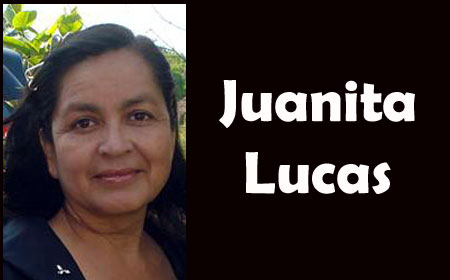BELIZE CITY, Wed. Apr. 22, 2015–Two senior educators who were suspended by the Ministry of Education back in 2008—and whose careers remain on pause even though the courts have quashed their suspensions—had their appeals seeking constitutional redress dismissed in a 3-2 split decision by the Caribbean Court of Justice (CCJ).
During its first itinerant sittings in the country of Belize, the CCJ announced its ruling in the case of Juanita Lucas and Celia Carillo, former principal and vice principal of La Escuela Secundaria Technica de Mexico in San Roman, Corozal, saying that it would uphold the decision of the lower court—which had both agreed that their suspensions should be discontinued, but found that the suspension of the teachers did not truly violate their constitutional rights, as alleged.
The administrators were suspended in 2008, following a series of mass sickouts by teachers at the school, as well as a slew of complaints by parents. The upheaval also occurred during a political transition, when there was a change in political administration, with the People’s United Party being replaced by the United Democratic Party, as the ruling party.
Magali Marin-Young, SC, attorney for the appellants, told Amandala today that the two women continue to receive their full pay 7 years later without being reassigned to other positions. Carillo has since reached the age of retirement. Lucas, who was the principal, had received an offer to work as ‘Teacher on Special Assignment’ – an offer which she considered a demotion.
Marin-Young told us that although the lower courts had overturned the suspensions, since only the school board had the power to suspend those women, the educators continued to pursue their case because they believed that their constitutional rights to remain employed had been expressly violated, that they had not been given a fair hearing, and that their reputations were unjustly tarnished.
Lucas’ and Carillo’s claim before the CCJ alleged that the conduct of the investigations and the manner in which they were suspended breached their fundamental rights such as the right to work, the protection of the law and the right to equal protection. They also claimed an award of damages for these breaches.
Justices Rolston Nelson, David Hayton and Winston Anderson believed that the constitutional rights of the teachers had not been breached and that no award for damages should be made, but Justices Adrian Saunders and Jacob Wit disagreed.
According to the executive summary of the CCJ judgment, the majority decision held that the suspensions were not to punish Lucas and Carillo, but rather to allow a proper inquiry into the problems at the school. It added that no disciplinary action had been taken against the women such as to trigger the protection of the Constitution. The CCJ noted that the right to work was not a guarantee of continued employment and there was no inference with the educators’ ability to continue practicing their profession.
As a result, the CCJ did not award the teachers compensatory damages. After dismissing their appeal, the court ordered the teachers to pay the costs of court for the respondents, listed as the Chief Education Officer, the Attorney General of Belize, the Minister of Education, and Yolanda Gongora, Jahmor Lopez, Pedro Kukul, Endevora Jorgensen – members of the investigation team appointed by the Ministry, which led a probe which resulted in the suspension of Lucas and Carillo.
The CCJ’s majority decision noted that, “the alleged hurt feelings and embarrassment suffered by the appellants could be addressed in the laws relating to defamation, malicious falsehood and judicial review.”
In separate judgments, Justices Saunders and Wit concluded that Lucas and Carillo had established that there was a breach of the right to protection of the law, and that they should be awarded damages as a result.
Saunders’ judgment noted that apart from the oral testimony provided by former board chairman, Narda Garcia, that the school had experienced a marked turnaround after Lucas and Carillo were hired to head the administration, “The school records show a dramatic improvement in academic performance across all subject types after the employment of the two ladies.” In 2007, the school was named Most Outstanding School of the Year, he noted.
Saunders said that, “In my view, this is a case in which I would have issued, apart from damages, a declaration that the Ministry breached the rights of these ladies and a further order that the Ministry make a public apology to them. A measure like this, even more so than the award of money, might have provided a suitable solatium to the ladies for their tarnished reputations.” However, he agreed with the other justices that their right to work had not been breached since, in his view, “Mere suspension from work with full pay will not necessarily amount to a denial of the right to work.”

